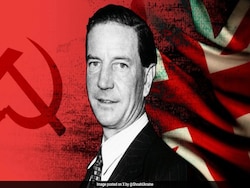The ongoing conflict in the Middle East has reignited a global debate over the ethics of foreign policy, particularly as it relates to humanitarian crises. In recent weeks, the death toll in Gaza has surged, sparking outrage and calls for accountability from around the world. A poignant question arises: how many dead babies does a war need before the international community, including nations like India, takes a decisive stand against violence?
New Delhi has historically championed the Palestinian cause, often positioning itself as a supporter of self-determination and human rights. Yet, in light of the current crisis, India’s response has been characterized by a troubling neutrality. Critics argue that this stance undermines its past commitments and raises ethical concerns, especially as reports of civilian casualties, starvation, and humanitarian disasters emerge from conflict zones.
The juxtaposition of India’s strategic partnership with Israel against its traditional support for Palestine serves to highlight a significant inconsistency in its foreign policy. Analysts point out that while India seeks to maintain economic and military ties with Israel, this alignment comes at the cost of moral clarity. The question lingers: at what point does strategic interest give way to humanitarian obligation?
This moral dilemma is further compounded by the stark images and reports coming from Gaza, which depict the grim realities faced by families caught in the crossfire. As children continue to suffer, the international community, including India, is faced with mounting pressure to respond more vigorously. Activists argue that silence in the face of such suffering is complicity, and they demand that governments prioritize human rights over political expediency.
The current situation presents a critical moment for India to reassess its diplomatic stance. With a burgeoning population that is increasingly vocal about humanitarian issues, the government must navigate the delicate balance between international relations and ethical responsibility. The call for a more humane approach is not just a plea for Palestine; it reflects a broader demand for accountability from nations worldwide.
As the global community watches closely, India’s response could set a precedent for how nations engage with conflicts that have far-reaching consequences for innocent civilians. The hope is that leaders will recognize that the cost of inaction is too high and that the lives of the most vulnerable should take precedence over political alliances.
In the end, the question remains: how many more lives must be lost before the world acknowledges its responsibility to protect the innocent? As the crisis unfolds, the urgency for a shift in policy grows ever more critical. The eyes of history are upon us, and it is time for governments to act decisively in favor of humanity.



